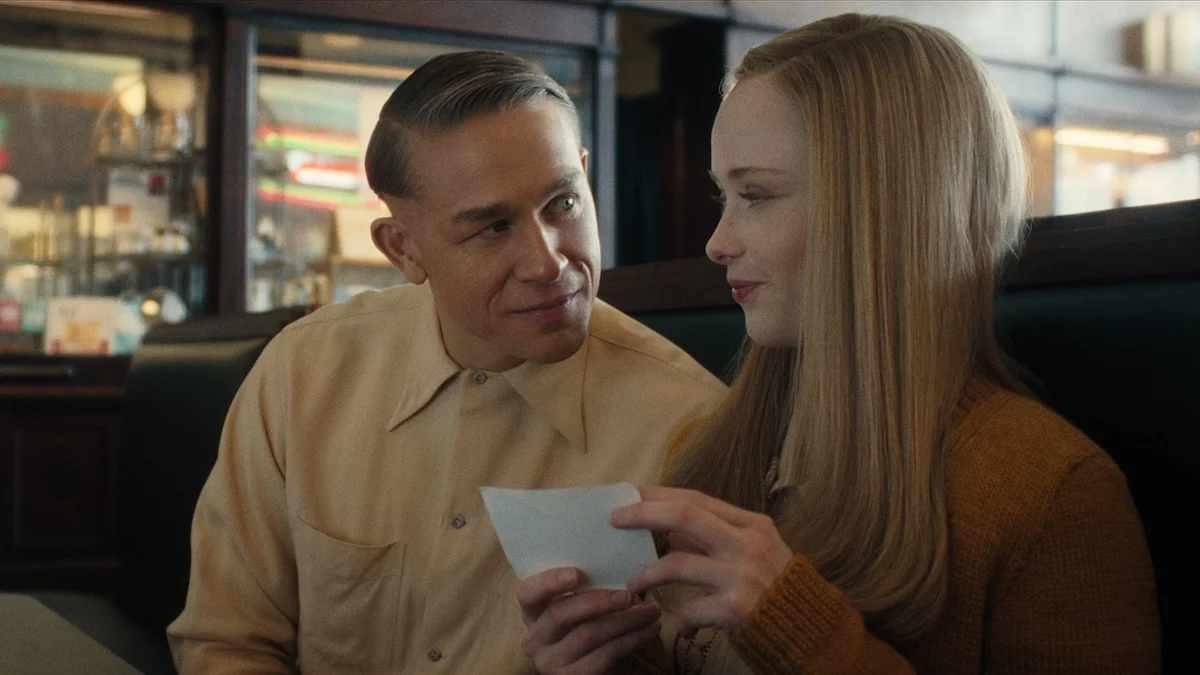In 2022, Ryan Murphy and Ian Brennan unveiled Monster: The Jeffrey Dahmer Story, and for the most part, I found it thoroughly engaging. It offered a breath of fresh air to the true-crime genre. While the series had its flaws—and arguably could have explored the victims’ perspectives more deeply—it showcased several outstanding performances and catapulted the already much-discussed serial killer culture into the stratosphere.
But I’m sad to say that this time around, they’ve completely missed the mark. Monster: The Ed Gein Story is utterly abysmal, an embarrassment to the genre. It’s oversexualised, sensationalised, and strays so far from the real story it’s trying to tell that it might as well have nothing to do with its source material at all.
Mother
I don’t want this piece to read like a snoozefest, so let’s get straight to my main issue with the show: its lack of depth. There’s no real attempt to go beyond the surface or explore what drives Ed Gein — no psychological insight, no curiosity about why he becomes the man he does. Instead, we’re left with a hollow portrayal that reduces him to a list of grim actions rather than a complex person shaped by circumstance.
The portrayal of his mother is even worse. She’s written as a one-note shouting machine, more a plot device than a person, existing only to justify Gein’s descent into violence. There’s no interest in who she was before all this — how she grew up, what she believed, or what turned her into the controlling figure we see. Without that context, the show misses its biggest opportunity: to show us not just what happened, but why.
What I would have done differently
Given full creative control on a project of this scale, and knowing I’d been trusted with such rare source material, I would have approached this show completely differently than Murphy. I’d dedicate an entire episode to the mother — showing her upbringing, her beliefs, her fears, and her contradictions — giving her real weight as a character. That context would naturally explain why Ed Gein became who he did, without ever spoon-feeding the audience. The mother is arguably the single most important influence in his life, and yet here she’s treated as a one-note screaming figure. This story deserved depth, nuance, and patience, not a constant rush to pander to viewers who feel they need stimulation every five seconds.
Hollow lead
Charlie Hunnam delivers a solid performance, but it could have been exceptional — and the limitation isn’t necessarily his fault. The material he was given is simply shocking in its inadequacy.
Who is Ed Gein? We need to know. Understanding the character is essential — TV 101. Especially when the character is the story. This isn’t about making him sympathetic; it’s about giving the audience enough context to understand who he is and why his story matters. Without that grounding, the entire narrative loses weight. Here, Gein is reduced to a hollow figure — a twisted sex symbol designed to appeal to the internet’s true-crime-obsessed crowd, rather than a disturbing but complex man whose crimes shaped a cultural obsession with evil itself.

My fix
I would have turned this show into a deep psychological study of Ed Gein’s mind — not this muddled mess weighed down by pointless subplots and a painfully miscast Alfred Hitchcock (Tom Hollander’s performance is downright distracting). Strip all that away. Keep the focus on the farm — it’s visually haunting, the one thing the show actually gets right. Use that setting to explore the twisted, suffocating relationship between Eddie and his mother — the true core of his psyche. That’s where the horror lies. It’s not about shock value or style; it’s about understanding how an environment breeds a monster. Be bold, be honest, and above all, be informative.
A damn shame
These shows have unlimited potential — in the right hands, they could be gripping, biopic-style explorations of real human darkness. But Ryan Murphy is completely burying that potential. Instead of examining monsters like Gein, he’s turning them into figures we’re meant to root for — giving them redemption arcs, heroic framing, and the full “cinematic universe” treatment. It’s absurd and, frankly, dangerous. This obsession with turning real-life killers into stylised antiheroes isn’t edgy; it’s irresponsible. Normalising, celebrating, and glamorising serial killers is a slippery slope — one that risks desensitising audiences and warping how younger viewers perceive violence, morality, and fame. These stories should confront evil, not turn it into entertainment fodder.

